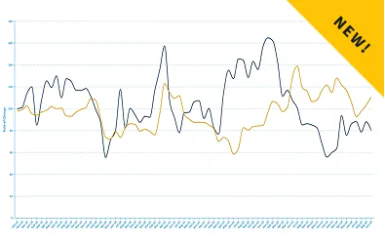9 Essential Tips To Know Before Hitting The Road In Your RV
There are an estimated 56 million people planning to take an RV trip this summer and even more looking into the fall and winter for road travel. Many of them are new to RVing. "We've seen so many first-timers come into the market in the last year and a half," says Monika Geraci, spokesperson for the RV Industry Association. But the key to a successful start to RVing is preparation, including both practice and planning. No matter the model, driving an RV is different from a regular vehicle. And unlike pulling up to a hotel, there's more than unpacking that has to be done before settling in for the night. Avoid a frustrating experience and cruise the open road with confidence with these RV insights from the pros.
1. Get Insurance
"Make sure you have insurance," says Maddi Bourgerie, spokesperson for RVshare. And it's not a suggestion. Insurance is required for RV usage, and traditional insurance doesn't cover it. Every state and insurance provider is different, and RV rentals have fine print to understand as well. Liability? Collision? Roadside assistance? Theft? Investigate the options and know what you're signing up for. "In case an accident happens, it's important that you're covered," Bourgerie says.
2. Practice Driving
If you're wondering about an RV license, don't worry—in almost every case, a special license or endorsement is not required. But just because you don't have to take a driving test, doesn't mean you shouldn't test yourself, says Paige Bouma, EVP at RV Trader. Whether it's your first time RVing or just your first time driving a particular model, she advises practicing before hitting the road so you are comfortable with key basics like stopping, parking, reversing, turning, and entering/exiting expressways. "It is very, very different from driving a car. I cannot stress this enough," Bouma says. The first day on the road should be short and close to home. If you're renting, consider getting the RV a day early to practice—Bouma doesn't recommend starting a trip the same day as it's picked up.
3. Understand the Equipment
"Familiarize yourself with the various options available when booking spots, as well as the terminology associated with RVing," says Bourgerie. "The difference between full hookups, partial hookups, and dry camping is essential!" Geraci recommends sites like Go RVing that offer videos, articles, and tool kits specifically for beginners to get acclimated and learn the lingo.
In addition to hookups, it's imperative to know the specs of the specific RV. For example, can your vehicle haul the weight of a trailer? Details like height, weight, and dimensions will be essential to know for scenarios like crossing bridges, fitting under overpasses, and finding parking—just ask Bouma, who tore off an air conditioner in a drive-thru on one of her first RV outings.
Check out the rest of the advice from Better Homes & Gardens here.
Please Sign in to View
Log in to view member-only content.
If you believe you are receiving this message in error contact us at memberservices@rvia.org.

